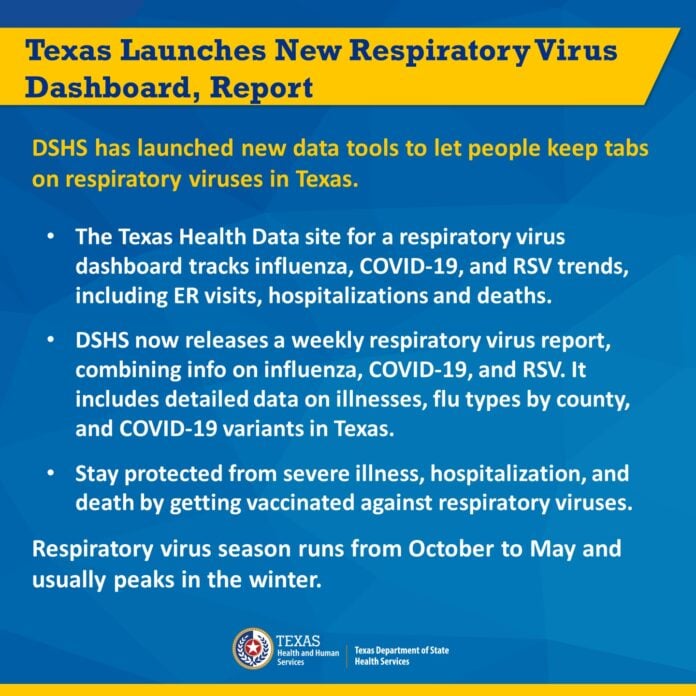Does it seem like everyone you know or work with is either sick or recovering from a respiratory illness? Flu, COVID-19 and RSV are circulating throughout the state, so the Texas Department of State Health Services has launched new data tools to let people keep tabs on respiratory viruses in Texas. A respiratory virus dashboard accessible through DSHS’s Texas Health Data site shows trends in illnesses from influenza, COVID-19 and RSV, the “big three” respiratory viruses most likely to cause serious disease at this time of year. Data includes emergency room visits, hospitalizations and deaths.
“Those data points demonstrate the diseases’ most severe effects on people, communities and the health care system,” said DSHS Commissioner Jennifer Shuford, MD, MPH. “The dashboard provides a near real-time look at conditions, so people can make informed decisions on precautions for themselves and their families, and health care professionals can make recommendations to their patients.”
According to Covid Act Now website, Texas had 2,397 new COVID hospital admissions (8.3 for every 100,000 residents) over the last week.
DSHS is also publishing a new weekly respiratory virus surveillance report, combining separate reports on influenza, COVID-19 and RSV. The report contains more in-depth data on the three diseases including information on the burden of influenza-like illness, counties where different types of flu have been found, and the proportions of COVID-19 variants present in Texas.
Respiratory virus season runs from October to May and usually peaks in the winter. However, the viruses are always circulating, so there is a risk of infection at any time of year.
Getting immunized against respiratory viruses is a good way for people to protect themselves against the severe disease, hospitalization and death they can cause. People can also help keep respiratory viruses from spreading by washing their hands frequently with soap and water, covering coughs and sneezes, and staying home when they are sick.











